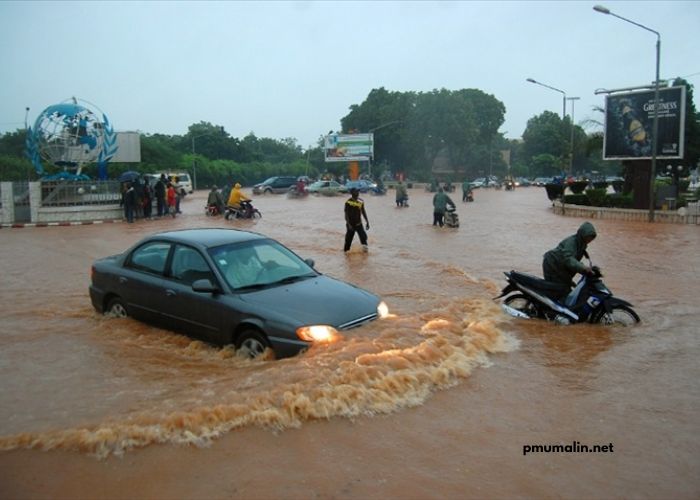In the heart of Burkina Faso lies Ouagadougou, the capital city that serves as the vibrant hub of the nation. As with any significant urban area, understanding local weather patterns and rainfall is crucial for both daily life and long-term planning. Météo Ouaga Pluie is a key resource for accessing accurate and timely weather information specifically for Ouagadougou. This article explores the importance of Météo Ouaga Pluie, its impact on various sectors, and how it contributes to the city’s overall well-being.
The Importance of Weather Forecasting in Ouagadougou
Weather forecasting plays a critical role in managing the daily lives of Ouagadougou’s residents. Given that the city experiences distinct seasonal variations, accurate weather predictions are essential for a range of activities. From planning agricultural practices to preparing for seasonal festivals, having reliable weather data ensures that individuals and organizations can make informed decisions.
Météo Ouaga Pluie provides comprehensive weather forecasts, focusing specifically on rainfall patterns, which are particularly relevant in a region where the rainy season can greatly impact life. This information is invaluable for farmers who rely on timely rainfall for their crops, as well as for urban planners who need to account for potential weather disruptions.
Seasonal Variations and Rainfall Patterns
Ouagadougou experiences a tropical savanna climate characterized by distinct wet and dry seasons. The wet season typically runs from May to October, during which the city receives the majority of its annual rainfall. Conversely, the dry season extends from November to April, marked by minimal precipitation and higher temperatures.
Understanding these seasonal variations is crucial for effective planning and resource management. Météo Ouaga Pluie offers detailed insights into these patterns, helping residents prepare for the changes in weather. Accurate forecasting of rainfall amounts and timings enables better water management and agricultural planning, mitigating the risks associated with both droughts and floods.
Impact on Agriculture
Agriculture is a cornerstone of Burkina Faso’s economy, and Ouagadougou is no exception. Farmers in the region rely heavily on seasonal rains to cultivate their crops. Météo Ouaga Pluie plays a pivotal role in supporting agricultural activities by providing forecasts that help farmers anticipate rainfall patterns and plan their planting and harvesting schedules accordingly.
By accessing reliable rainfall data, farmers can optimize their use of water resources, apply fertilizers more effectively, and make timely decisions about crop management. This not only improves crop yields but also enhances food security and supports the local economy.
Urban Planning and Infrastructure
Urban planning in Ouagadougou must account for the city’s weather patterns and potential rainfall. The design and maintenance of infrastructure such as roads, drainage systems, and buildings are influenced by weather conditions. Accurate rainfall forecasts from Météo Ouaga Pluie are essential for ensuring that urban infrastructure can withstand seasonal variations and mitigate the impacts of extreme weather events.
For instance, anticipating heavy rainfall helps in planning effective drainage systems to prevent flooding and damage to properties. Similarly, construction projects can be scheduled with weather conditions in mind to avoid delays and ensure structural integrity.
Health and Safety Considerations
Weather conditions can also impact public health and safety. Rainfall patterns influence the prevalence of waterborne diseases, which can be a significant concern during the rainy season. Météo Ouaga Pluie helps public health officials and residents stay informed about potential risks associated with heavy rains, such as flooding and the spread of diseases.
By providing timely weather updates, Météo Ouaga Pluie supports preventive measures, such as ensuring clean water supplies and implementing sanitation practices. Additionally, understanding weather patterns aids in preparing for extreme weather events, reducing the risks of accidents and ensuring the safety of the community.
Educational and Recreational Activities
Weather conditions affect various aspects of daily life, including educational and recreational activities. Schools and educational institutions in Ouagadougou may adjust their schedules based on weather forecasts, particularly during the rainy season when transportation can be challenging. Météo Ouaga Pluie provides the necessary information to make these adjustments, ensuring that educational activities can proceed with minimal disruptions.
Similarly, recreational activities and public events often rely on weather conditions. Festivals, outdoor sports, and community gatherings benefit from accurate weather forecasts, allowing organizers to plan events that accommodate the expected weather and ensure a positive experience for participants.
Technological Advancements and Future Trends
Météo Ouaga Pluie continues to evolve with advancements in technology. Modern weather forecasting tools and models offer increasingly accurate and detailed information, enhancing the reliability of rainfall predictions and weather forecasts. As technology progresses, the accuracy and granularity of weather data are expected to improve, providing even greater benefits to the residents of Ouagadougou.
Future trends may include the integration of advanced data analytics and machine learning techniques to refine weather predictions further. Additionally, the development of mobile apps and online platforms can make weather information more accessible, allowing residents to receive real-time updates and alerts.
Community Engagement and Awareness
Community engagement is crucial for maximizing the benefits of weather forecasts and rainfall data. Météo Ouaga Pluie not only provides information but also plays a role in raising awareness about weather-related issues. Educational programs and outreach initiatives can help residents understand the importance of weather forecasting and how to use the information effectively.
By promoting community awareness, Météo Ouaga Pluie contributes to building a more informed and prepared population. This collective knowledge helps individuals and organizations respond proactively to weather changes, enhancing overall resilience and well-being.
Conclusion
Météo Ouaga Pluie is a vital resource for understanding and managing the weather and rainfall in Ouagadougou. Its impact extends across various sectors, including agriculture, urban planning, public health, and daily life. By providing accurate and timely weather forecasts, Météo Ouaga Pluie supports informed decision-making and contributes to the overall quality of life in the city.
As technology advances and the demand for precise weather information grows, Météo Ouaga Pluie is well-positioned to continue playing a crucial role in the community. With its focus on rainfall patterns and weather forecasting, it remains an indispensable tool for navigating the dynamic climate of Ouagadougou.




